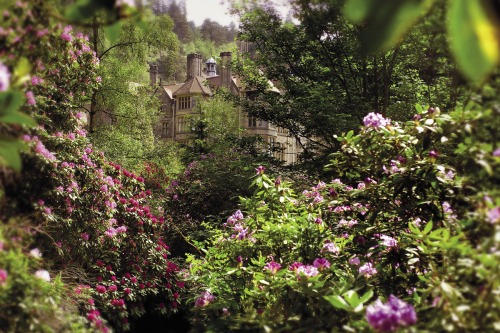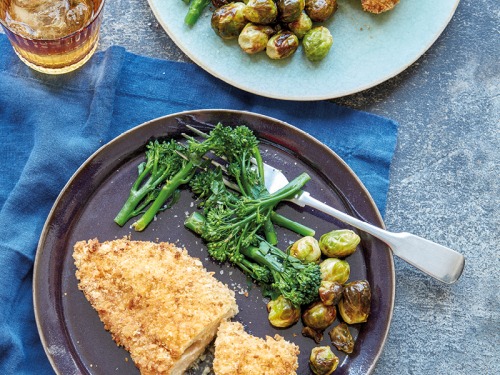North East's Top Entrepreneurs

Over the last 20 years, a lot has changed in the world of business across the region
The North East has always been a hotbed for ingenuity and enterprise. From George and Robert Stephenson forming the bedrock of the railway system, to Gladstone Adams inventing the windscreen wiper after driving back from watching Newcastle play in the FA Cup final. Thanks to some fantastic initiatives, which give the best and brightest new business ideas the time and space to flourish, as well as the North East’s penchant for entrepreneurship, we have another crop of interesting and exciting new businesses to look out for.
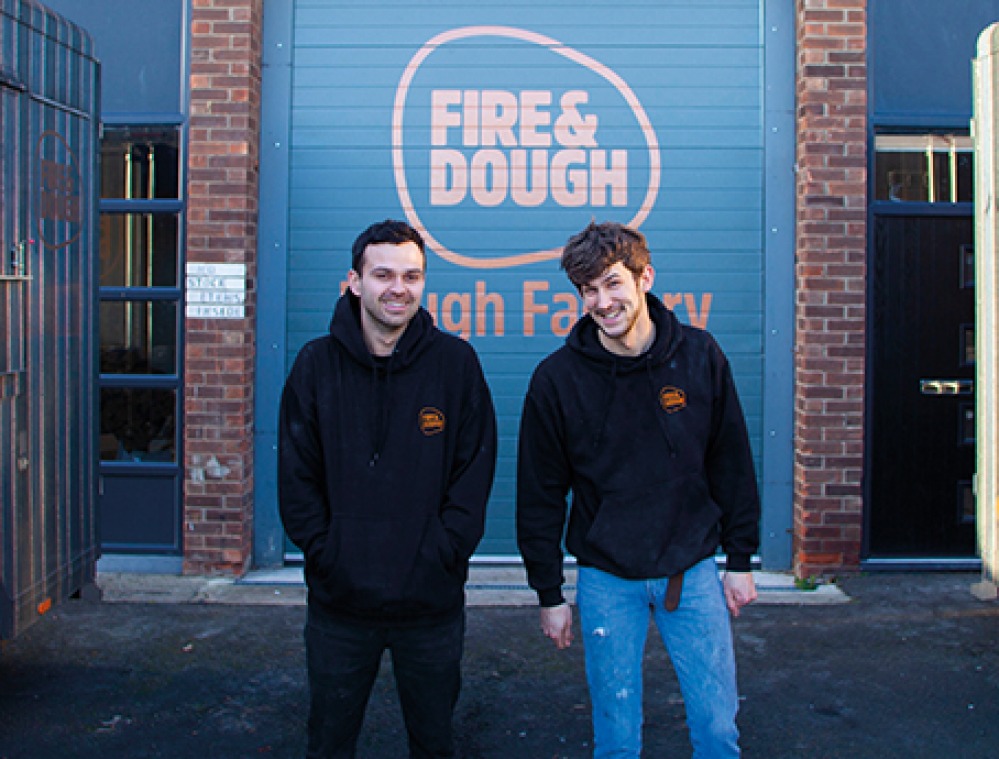
The popular pizza trucks roaming the region
Tell us about yourselves.
We’ve known each other for years – we went to school together – so we probably met when we were about 10. We first met playing rugby together, and have been mates ever since, really. After school we both went off and did our own things for a bit, then we both went to Australia together. We were living in Melbourne for about a year before we came back with the idea for Fire and Dough.
How did Fire and Dough start out?
We’ve always had an interest in food; we’d always be cooking at home, and loved having friends round for dinner. But we didn’t know about proper Neapolitan pizzas until a friend invited us down to London; he took us to a local restaurant which served them, it was something that we never really had up North. We just got really interested in how they were made.
Where did you get your recipes from?
Once we’d decided we wanted to do it, we trained in some local restaurants who made wood-fired pizzas. Along with that, there was a lot of trial and error and watching YouTube videos, and quite a lot of attempts that weren’t great! So it was a lot of taste testing.
That sounds like a delicious perk of the job.
Absolutely! After a while it got a bit less enjoyable – Ross’ Gran was a tough critic – but we got there in the end.
You got your second van a month or so ago – does that mean business has been better than you thought?
It’s gone a lot better than we expected. We managed to get a grant funding from LEADER project, a government project for rural development. They’ve paid for 40 percent of the new van, which has meant that we’ve been able to do it faster than we could have otherwise.
What sort of places do you end up at?
We’ve done weddings in lots of places across the North East. And we’ve done a few festivals so far, like the County Show, and we’re looking to do other local ones like Lindisfarne Festival. But our bread and butter is going around the towns. Currently we’re doing five nights a week, Tuesday–Saturday, on a week’s rota – we’ve got 10 towns that we visit once per week so we don’t exhaust any one place. People seem happy to eat pizza once a week rather than five times every week! We’re doing quite well in rural areas, where perhaps they used to have a pub which served food. Evidently, the demand wasn’t there for the pub to survive with just the local community to cater for seven days a week.
What’s your favourite pizza?
We’ve got a few. A margherita with parma ham, rocket and parmesan and a bit of olive oil is delicious, and a blue cheese pizza with truffle oil are probably our favourites.
What are your plans for the future?
I think our expectations have changed. At the start, we just thought it was going to be the two of us going around and living a nice, chilled life, but it’s taken off a lot more than we would have ever expected. It’s quite hard to say – we definitely want to grow the business. We’ll consolidate a little bit before we locate a potential restaurant or get more vans. We want to do more music festivals, private parties and weddings, which are other avenues we’re willing to explore more. It seems like there’s a lot of scope to go in a few different directions, but we’ll see how the next year pans out first.
What do you enjoy most about living in the North East?
A lot of the countryside is just so beautiful, and it’s really easy to get out of the city. We’ve both recently moved to Newcastle, and we didn’t realise how much was going on around the Quayside. It’s also a really nice community. You can feel a part of it, which is similar to all these little villages we go to.
Do you still go out and play rugby together?
Those days have gone, I think! We’re probably not strong enough any more!

Providing old-school styles for a new age
Tell us about yourself.
I initially studied fashion photography, then I realised that I wanted to run my own business. So I came up to Newcastle and did a creative enterprise course, and that opened up the possibility for me to combine my love of fashion and my love of the fashion industry with being self employed. That culminated in Trendlistr, which was initially going to be kind of a fashion platform, but it’s since evolved and become an online space of curated vintage that is informed by current trends. We’re always looking for something a bit different in terms of the clothing that we choose.
When did you first get into vintage fashion?
Probably from day one! I was always going around car boot sales, and I read a lot of books on fashion history, so I’ve always had a strong interest in the history of clothing. When I started to see the parallels between vintage clothing and what was on the catwalk, I realised that fashion was always interacting, it was always a blend of the old and the new, so I think that’s when it really captured my imagination. It’s so much more complex than I first thought in terms of how designers see trends, and how the same trends reappear and get reused and reimagined.
You’ve recently branched out into having a studio – how has that experience been?
It’s been great. We’re still mainly online – we sell a lot to the US and to Europe as well, but we do have a small studio in Newcastle, and that’s been really nice, just giving people a chance to come in and actually try some of the clothes. One of the best things about vintage is obviously the superior fit; a lot of the items are handmade, so it might be harder to find that dress with the perfect fit, but when you do, it’s like wearing a piece of designer clothing for the cost of something you’d get on the high street. At the moment, I’m actually designing a range of pieces inspired by some of our vintage selection and getting them made here in the UK, but in up-to-date fabrics. I’m trying to make the designs more relevant for modern wear, so making something that’s going to appeal to people who wouldn’t necessarily wear vintage.
What is it like running your own business?
The best part is being able to be creative in what you do day-to-day, so being able to have quite a big impact with the decisions that you make. I really like being able to see something develop; Trendlistr has gone through so many different phases and it’s still developing, so that has been really nice just to experience and to realise that those stumbling blocks, those small mistakes you make, all add up to positive things because it’s actually all about moving forward. It’s a more positive environment for taking risks and making mistakes and being creative and having fun with what you’re doing.
What brought you up to Newcastle in the first place?
Initially, I came up to do my postgraduate degree, which was in Creative Enterprise. I ended up staying because I loved the way of life, I came up from London, so it was a big contrast! I was able to find a really great creative incubator, Ampersand Inventions, who offer affordable office space for new creative companies, but also a whole host of other things, and they’ve been really supportive in helping me get things set up and keeping things on the right track. I think that’s something I wouldn’t necessarily have had access to in other cities, it’s really unique.
What’s your favourite thing to do in the North East?
The Cat Café – can I say that? It’s so good! Other than that, I really like going to the Side Gallery, that’s my favourite thing to do on the weekend. It’s a small photographic gallery, and I always come away from it having learned something. They don’t faff about with really pretentious descriptions of the work they’re showing, they’re just really narrative driven and they’ve always got a really interesting show going!
Do you have a favourite vintage era?
I think in terms of an era, ‘60s and ‘70s are definitely my favourites. Again, because of the bold prints, and I love the flares and the really exaggerated shapes.
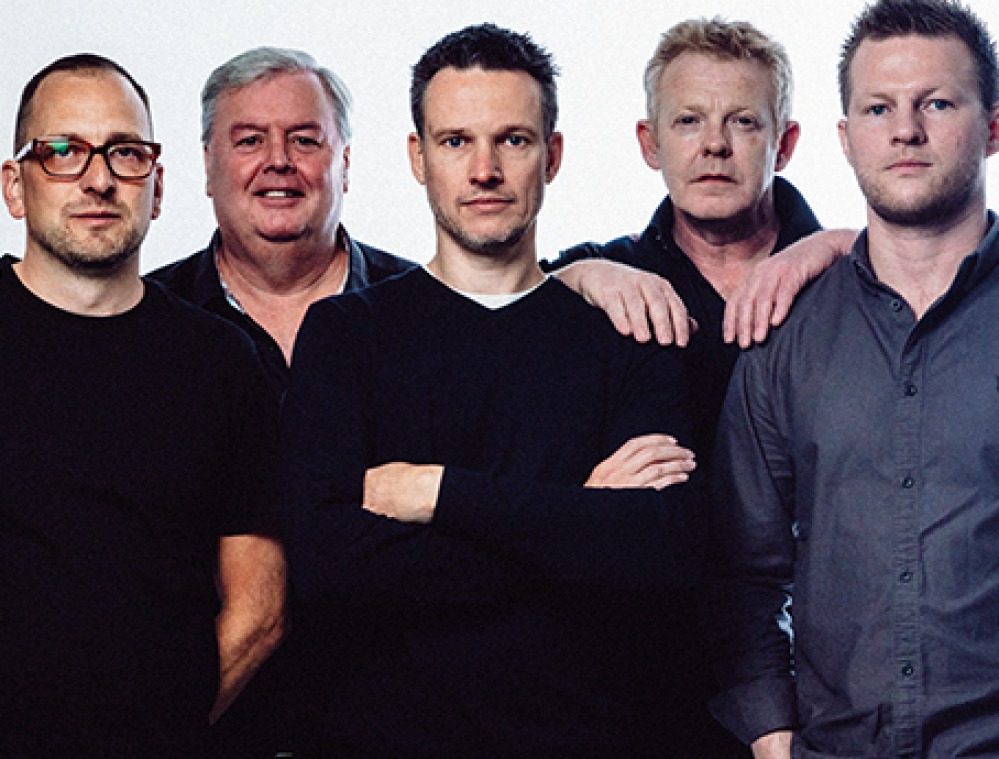
The app that gives you the power over your insurance
Tell us a little bit about yourself.
I’m not from the North East originally – I’m from Northampton. I did a computer science degree in the early ‘90s in Manchester, where I also met my wife who is from the North East. I spent 15 years or so working in London, New York and Paris at investment banks in tech. We came back to the North East for good in 2015. I met a couple of chaps who were trying to do things in insurance, and between us we saw an opportunity to bring my speciality, which was electronic trading, to the distribution of insurance, and there you have honcho. So what we’re doing with honcho is creating a very consumer-centric, open, transparent and equitable market place for the distribution of personalised insurance products – be it car, home, pet, or anything else.
How has living in the North East played a part in you starting your own company?
The North East is brilliant from a lifestyle perspective. We live in Hexham, and we’ve got great schools and fantastic countryside on the doorstep – Northumberland is just beautiful. There’s also a really good tech scene here. There’s a great, very self-supporting economy of tech start-ups, and we interact very well with each other and we help each other out, which is brilliant. There are a couple of downsides – a lot of the people we need to work with are elsewhere in the UK – but the upsides are fantastic; it’s cheaper to do business up here, we’ve got a great office with Business Durham in Aykley Heads, which is significantly cheaper than it would be in London and because it’s a digital platform it could be located anywhere.
Explain to us what honcho does in layman’s terms.
So honcho is a reverse-auction marketplace. A reverse auction is where sellers bid downwards against each other to win the business of the buyer. So we are similar to price comparison websites, in that we provide a platform where a consumer can go and look at quotes from many different insurance providers, but the key difference here is that those insurance providers bid against each other to push the price down to attract the consumers. That’s very different to what takes place with price comparison websites, which are really passive environments, and have often been accused of having a conflict of interests, because they actually charge different companies different amounts of money to feature on their site. With honcho, it’s a real consumer-first proposition. We’re called honcho because you are the head honcho, you are at the centre of the buying proposition – people bid to win your business, and then we charge those insurers a pound to enter an auction cycle to win that business.
You’ve used crowdfunding for a lot of your backing – how has that experience been?
It was absolutely brilliant, to be honest. It’s a tough business to raise money in, particularly if you look at start-up businesses outside London. The crowd is a consumer group basically, so if they get it and they support it, then that’s enormous validation for our product from the people who are going to be using it. Beyond that, we’ve picked up around 600 investors from the crowd, and they are incredibly engaged in both supporting us and helping us develop the product – we’ve recently been through alpha testing, and we’ve had a fantastic response from our crowd investor base, who are looking at that product first and helping us to improve it. But also they’re out there, they’re going to push the product, they’re going to recommend it to people.
What’s your favourite thing to do around the North East?
I’ve been a climber all my life, and I used to come to Northumberland to climb years and years ago, I used to do competitions in the climbing wall in Eldon Square. But we just live in a beautiful area, so we go on lots of walks with the kids. We’ve got fantastic gastropubs too – I live quite close to a pub called the Rat, which we love to walk over to.
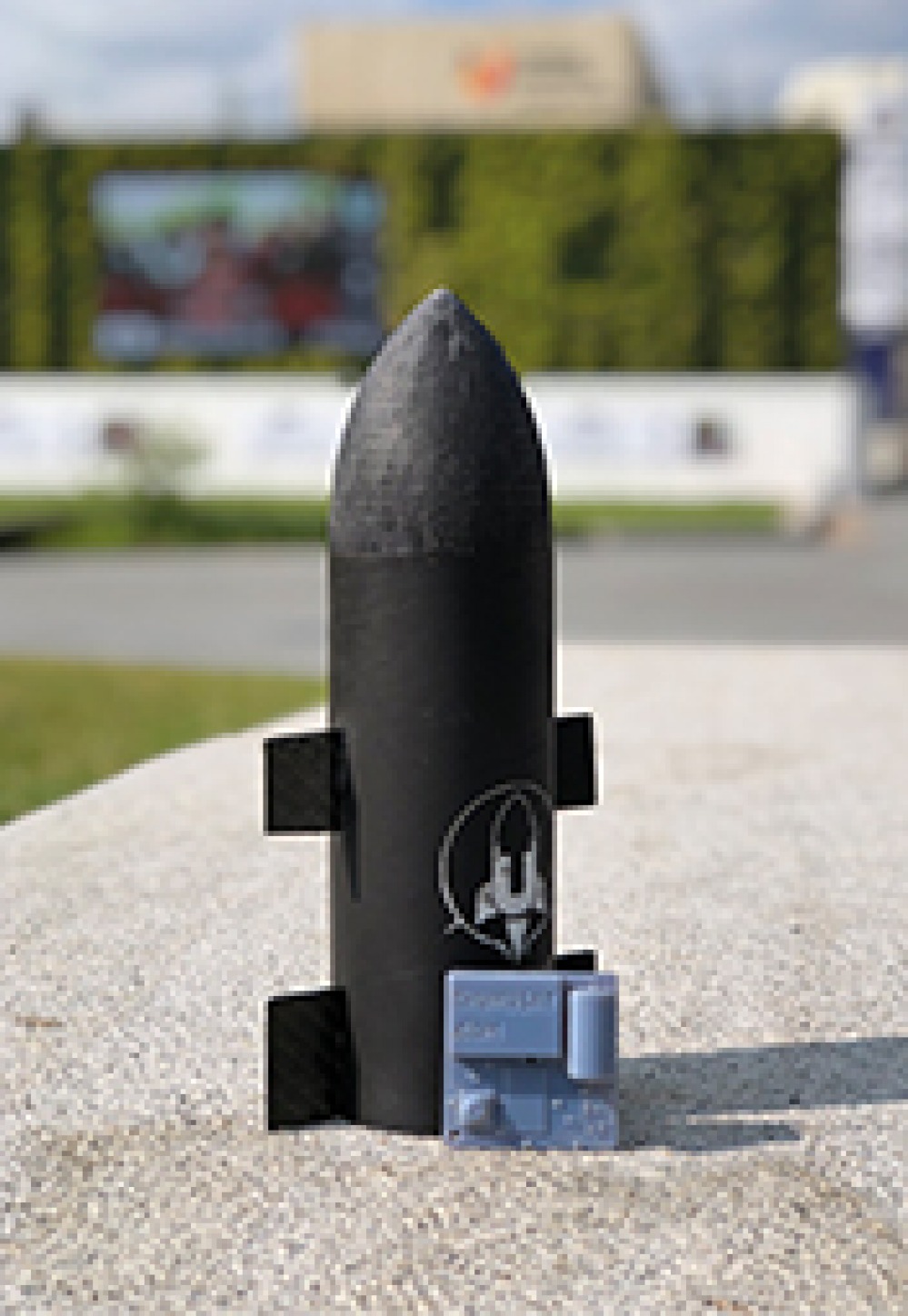
Two students with their heads in the clouds, in all the best ways
Tell us about yourselves.
Andrew: I’m a final year Aerospace Engineering student at Teesside University, where I also did my foundation year. I live in the Tees Valley, and I’ve been involved in the aviation industry for a while – I got my private pilot’s license in 2012, and was initially motivated to go to university because I was interested in drones and aviation, but then fell in love with space.
Ben: Just like Andrew, I’m also a final year Aerospace Engineering student at Teesside. I’m an RAF reservist over at RAF Leeming, 607 Squadron, and in my spare time I do RAF policing. I’ve grown up in an airforce family, so I’ve always been interested in the aerospace world, but I never thought I’d actually be involved in space itself! It’s an amazing industry, especially in England – you don’t think there are many space companies out there, and you don’t think you could get involved in space, but in reality there are lots of companies around.
What is the concept behind StratoBooster?
B: We use a balloon to lift a rocket up to 32 kilometres altitude, where it then requires significantly less thrust to launch. Our balloon concept to reach space is not a new idea, we didn’t come up with it – NASA tried it in the ‘60s, but they couldn’t quite achieve it because they were doing it on a large scale with large rockets and balloons. There are a couple of companies now that we know of that are trying to develop balloons of the same scale as NASA’s, but the unique aspect of our operation is that our rockets are only 30 centimetres tall and our balloons are only 1.8 metres in diameter, so it’s small in comparison. In terms of the commercial market, in the industry we are classified as using “small” satellites – we cater for satellites that are about 200g – so our system is a lot smaller than other companies that are researching and developing at the minute.
Do you think there’s enough of a focus on space travel at the moment?
A: Well I think there’s a lot of emphasis on space at the minute. Virgin Galactic were successful in getting to 51 miles high recently. Felix Baumgartner when he did his space jump, he was at about 24 miles, so they’re significantly higher than Baumgartner, so Virgin are excelling with space tourism. You’ve got Virgin Orbit, who are hopefully going to be based in Cornwall; you’ve obviously got NASA, who have recently managed to land a drone on Mars; and a lot of people are talking about SpaceX right now, with the two rocket boosters that landed parallel to each other. I think there could be more done in the UK for space to support small space operators like ourselves, from the UK Space Agency and the Government. It would be great for even small companies like us to get some support and recognition.
Are you planning to stay based around Teesside?
A: Yes, we plan on keeping StratoBooster here. We rent a small office space in the business incubator that the university run – it’s called, ironically, Launchpad. One of the key parts of our business is that we want to try to keep our headquarters based in Teesside – there are a lot of skilled people here in the North East, and a lot of students here, who, after they graduate, have to move away to look for jobs. So we want to build a company, where we can keep the aerospace jobs here on Teesside. Both Ben and I plan to continue our education here by enrolling in a Masters programme for next year.
What’s your favourite place to visit around the North East?
B: Because I’m from North Yorkshire, it’s got to be the Yorkshire Dales or the Yorkshire Moors. I do a lot of running, so I quite like it up on the Cleveland Way.
A: For me – it does get a lot of bad press – but I love Middlesbrough. We work in Middlesbrough every day, we come to uni in Middlesbrough, and the town’s a nice, vibrant place, the campus is great, there are nice restaurants, the football team’s great – I take the kids to watch them. They know a good team when they see one!






